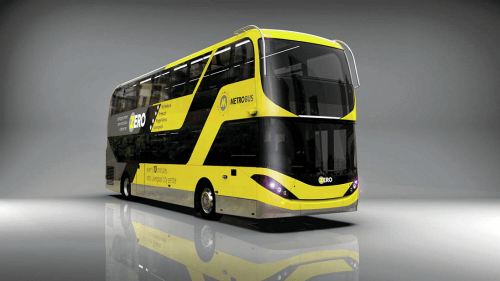Local leaders have taken the next steps to put city region’s buses under public control with a unanimous vote in favour of franchising
On Friday 4 March the Liverpool City Region took the next step towards a major reform of its buses in a move that would see services taken back into public control. In the ‘landmark’ move, local leaders on the Combined Authority voted unanimously to confirm franchising as the region’s preferred future model for running the bus network and services – a move that would reverse the industry’s deregulation in the mid 1980s.
More than 80% of journeys on the city region’s public transport network – over 400,000 a day – are made by bus. The move is part of City Region Mayor Steve Rotheram’s pledge to reform the region’s transport by building a London-style system that he says will make travelling around quicker, cheaper, greener and more reliable.
The Authority said that under its plans, buses would better integrate with other modes of transport and ticketing would be made simpler and more convenient with the introduction of a tap-and-go system with daily fare caps that will mean passengers always pay the cheapest fare.
The Mayor said that franchising would allow passengers to enjoy ‘cheaper, quicker and more reliable services’ and was now identified as the preferred option to deliver a bus network ‘designed around the needs of local people, not private shareholders.’ “Good public transport is the hallmark of any modern, successful city region and buses are its backbone,” he said. “Hundreds of thousands of people rely on our region’s buses every single day. They are a lifeline for connecting people in our communities with each other and opportunity.
“But too many feel left behind by a system that simply does not work for them. In too many places, public transport is too confusing, too unreliable, and too expensive. Liverpool city centre can sometimes feel as far away as London. Today we have taken a massive step towards putting that right. Thanks to devolution we have the power to roll back the 1980s and reverse four decades of disastrous deregulation. We’re taking back control of our bus network and running it in the interests of local people – not private shareholders.
“This vote is the culmination of years of hard work, but it is only one step towards our achieving my vision for a London-style transport network. I want to make travelling round our region cheaper, quicker, greener and more reliable – and to simplify ticketing under a tap-and-go system that means you’ll always pay the cheapest fare. Our region should not have to settle for a second-class service. This is a massive step towards building the transport network our 1.6m citizens deserve.”
The report placed before the Combined Authority summarised the outline business case and showed that bus franchising was the most favourable option in most aspects, and would help deliver the region’s broader ambitions.
Besides giving the Authority control over fares, timetables and routes, the decision means that it could also could take greater control over the bus fleet. The next stage of the process will include work to complete the bus franchise business case and an independent assessment, before launching a public consultation.
In 2018, the Combined Authority held a Big Bus Debate in which people were invited to say what they wanted from their bus services. The Authority reported that respondents asked for a bus system that is more reliable, easier to understand, more convenient and better value for money as well as punctual and affordable.


